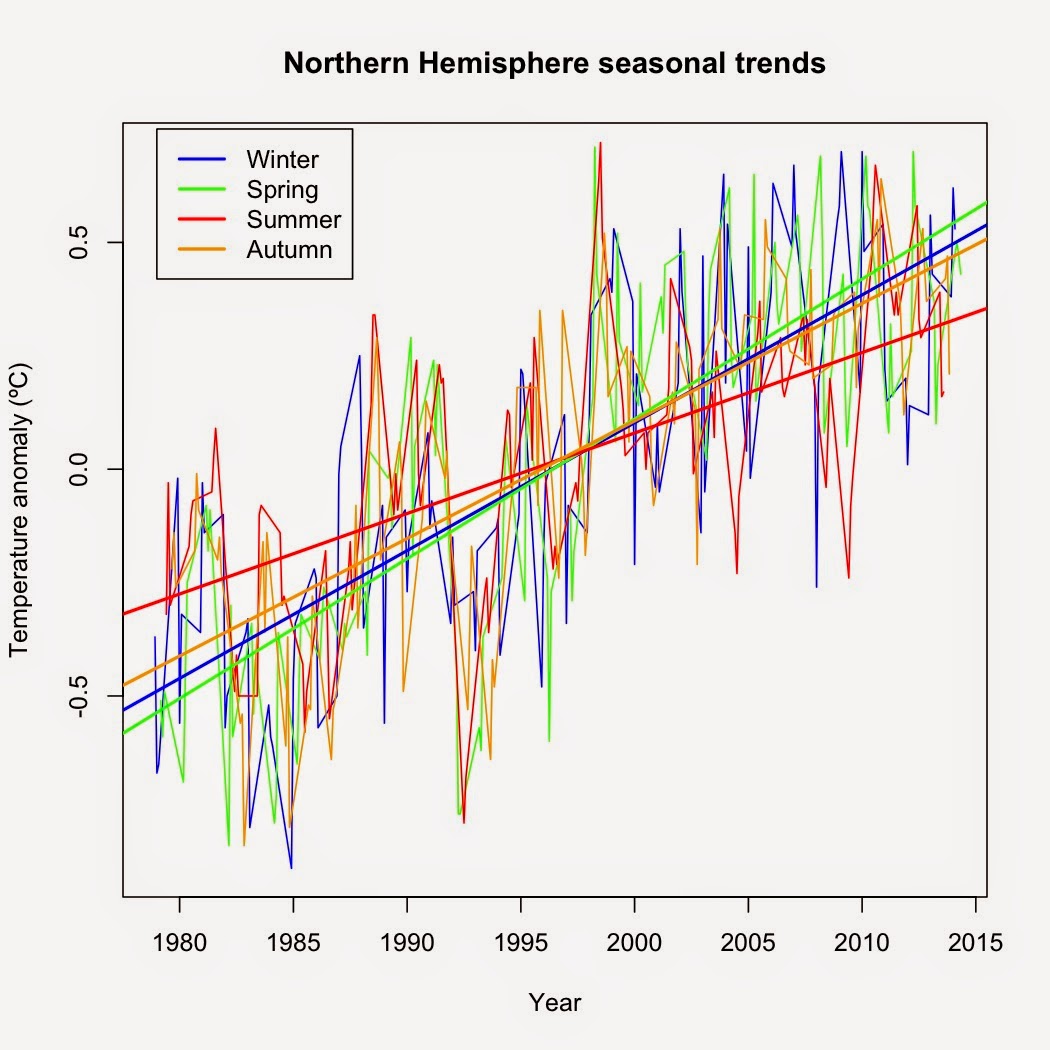This is the time of year all eyes start turning toward the Arctic, specifically how rapidly and/or much the multiyear sea ice will melt this particular year. Here is the average sea ice extent for September since 1979: I've added a loess regression line along with 95% confidence intervals to highlight the trend. Despite last year's rebound from the 2012 low, the overall trend is decidedly down, with less multiyear ice remaining as time goes by. Now on to my prediction of what the ice will do this year. What I did was simply to extrapolate based on the loess regression, which yielded a prediction of 4.135 million km 2 . I also fitted a polynomial regression to the data, which produced a prediction of 4.085 million km 2 . Both are well above the record low in 2012 (3.58 million km 2 ), showing how anomalous the 2012 low was. If the loess curve holds, I wouldn't expect the trend to fall below the 2012 low until 2018. So, what is your prediction of what the Septe



